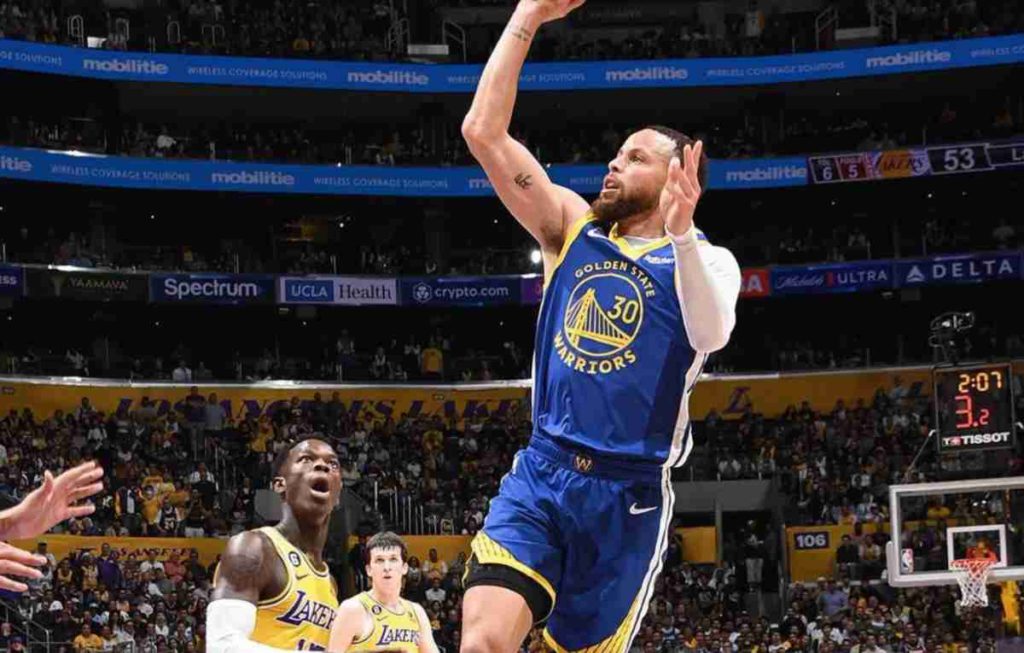UNITED STATES: Where the courts ignite, and rivalries collide, NBA dynasties aren’t built in a day; they surge like thunder, casting an electrifying spell that captivates fans and etches its mark on the annals of basketball history.
The NBA has witnessed several dynasties throughout its storied history, teams that have achieved prolonged success and left an indelible mark on the sport. These dynasties are characterized by their ability to dominate the league for an extended period, often winning multiple championships and leaving a lasting legacy.
In this article, we will explore the blueprint for creating an NBA dynasty, examine the key elements that have propelled teams to greatness, and analyzing some of the most iconic dynasties in NBA history.
Establishing a strong core

A common thread among NBA dynasties is the presence of a strong core of talented players. Superstar talent and skilled, well-coordinated role players make up this core typically. The dynasty-building process often begins with the acquisition or development of a franchise player who becomes the cornerstone of the team. Examples include Michael Jordan for the Chicago Bulls, Magic Johnson for the Los Angeles Lakers, and Tim Duncan for the San Antonio Spurs.
Exceptional leadership and coaching
On and off the court, exceptional leadership frequently serves as the foundation of NBA dynasties. The presence of a visionary coach who can cultivate a winning culture and maximize the potential of the team is vital.
Coaches like Phil Jackson, Pat Riley, and Gregg Popovich have been instrumental in orchestrating multiple championship runs by their respective teams. Their ability to motivate players, make tactical adjustments, and foster teamwork has been crucial to sustained success.
Continuity and stability
NBA dynasties are built on continuity and stability within the organization. This extends beyond the players and coaching staff to the front office and ownership. A long-term vision, commitment to player development, and sound decision-making are essential factors.
Organizations that prioritize stability and avoid frequent changes in leadership and direction can build a foundation for sustained success. The Boston Celtics of the 1960s, led by Red Auerbach, and the Los Angeles Lakers of the 1980s, under the ownership of Dr Jerry Buss, exemplify this aspect.
Adaptability and evolution

While a strong core and stability are important, NBA dynasties must also possess the ability to adapt and evolve. The game of basketball is constantly evolving, and teams that can adjust to changing trends and developments have a better chance of maintaining their dominance.
This involves incorporating new strategies, embracing modern analytics, and making astute roster adjustments. The Golden State Warriors dynasty of the recent past is a prime example of a team that harnessed the power of three-point shooting and small-ball lineups to revolutionize the game.
Mental fortitude and competitive drive
To achieve dynasty status, teams must exhibit exceptional mental fortitude and an unwavering competitive drive. Overcoming adversity, bouncing back from setbacks, and maintaining a winning mentality are crucial.
The “never-give-up” attitude displayed by the Chicago Bulls during the 1990s, led by Michael Jordan’s legendary competitiveness, propelled them to six championships in eight years and solidified their dynasty status.
NBA dynasties are the culmination of various factors, including the presence of a strong core, exceptional leadership, continuity, adaptability, and an unwavering competitive spirit. While each dynasty may have unique characteristics, they all follow a blueprint that combines talent, coaching brilliance, and organizational stability.
As the NBA continues to evolve, new dynasties may emerge, leaving their mark on the league’s rich history and captivating basketball fans worldwide.
Also Read: Bill Russell’s Number 6 Jersey Retired across NBA

